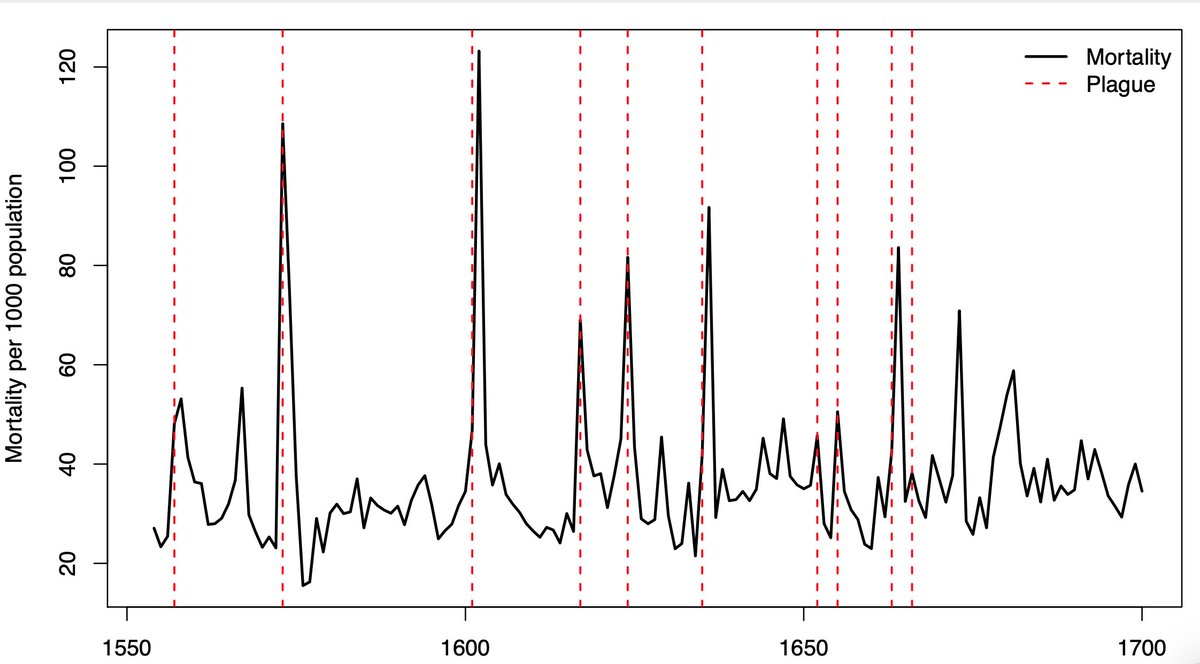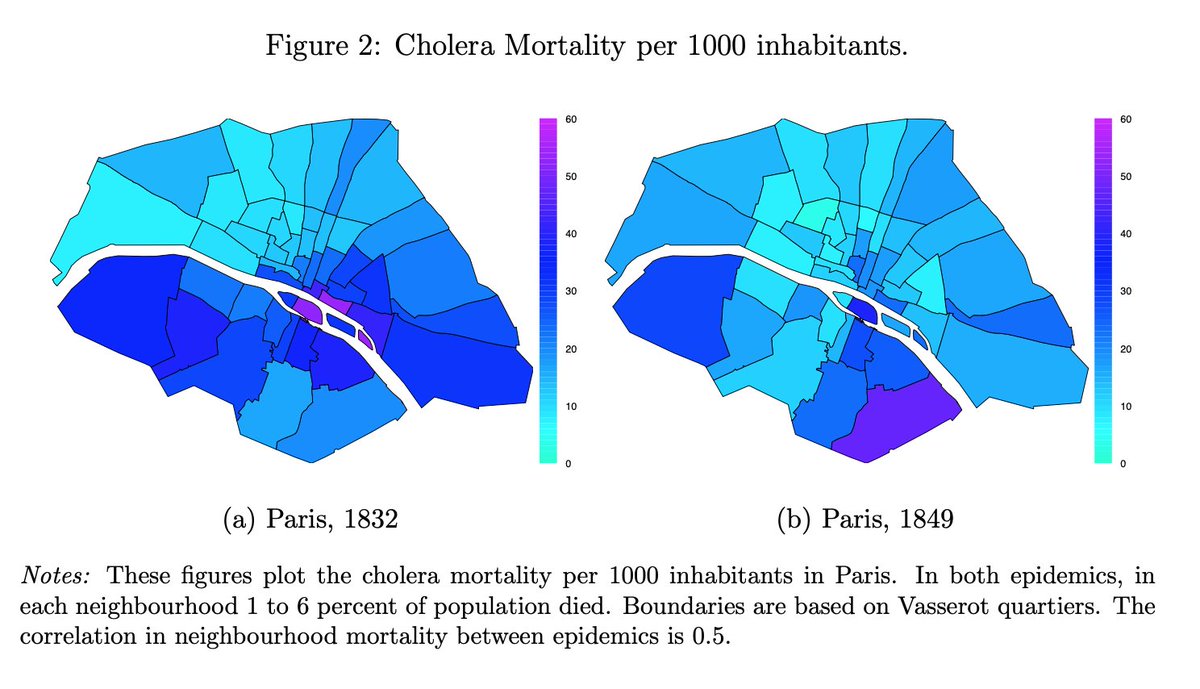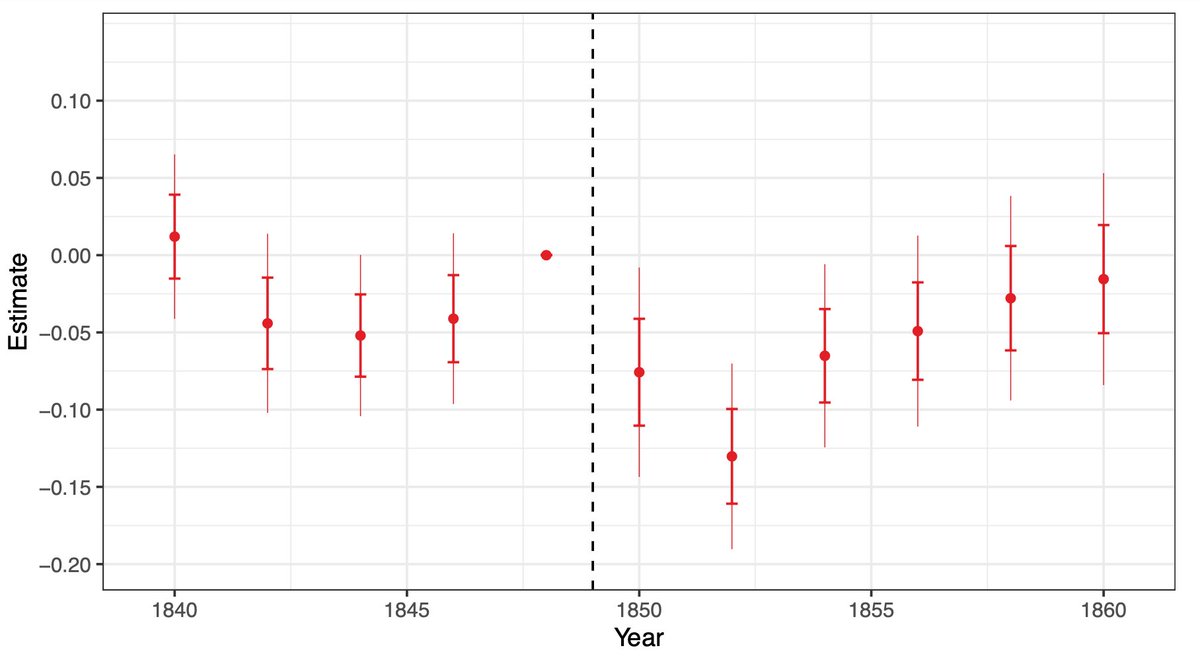How do housing markets respond to a major pandemic? In a new paper, Marc Francke and I study historical outbreaks of the plague and cholera to answer this question.
TL;DR: Large but short-lived declines in house prices, smaller responses in rents.
https://papers.ssrn.com/sol3/papers.cfm?abstract_id=3566909">https://papers.ssrn.com/sol3/pape...
TL;DR: Large but short-lived declines in house prices, smaller responses in rents.
https://papers.ssrn.com/sol3/papers.cfm?abstract_id=3566909">https://papers.ssrn.com/sol3/pape...
We study outbreaks of cholera in Paris (1832, 1849) and the plague in Amsterdam (16th-17th centuries). Why? These epidemics had a significant death toll and a large impact on daily life and the economy. And: we have micro-level archival data on mortality and housing transactions
What is big? Several times, the plague killed over 10% of the population in Amsterdam. Paris was not spared either, with cholera outbreaks killing up to 6% of the population in dense working-class neighborhoods (this likely was a catalyst for the redevelopment of Paris).
These cities were very resilient to these pandemics, and in both cities, migration quickly made up for the loss of population. During the era of the plague, Amsterdam experienced its `Golden Age`. Correspondingly, rent prices grew over time and barely declined around epidemics.
However, house prices show bigger declines. In a basic regression, we find that the outbreak of a major epidemic causes house prices to decline by 5.5% per year until the year after the epidemic. For rent prices, this is about 2.5%.
However, it is hard to adjust for unobserved time trends. So we instead look at the prices of individual properties sold repeatedly. For Amsterdam, we find that properties realize 13% lower prices in the first six months after an outbreak, after controlling for annual trends.
This plot compares Paris (repeat-sale) prices in high-mortality areas with low-mortality areas, for the 1849 cholera. Areas with twice-average mortality experience 13% larger price declines between 1848-1852. A clear trend break, but prices also revert quickly.
We think the large drop in house prices relative to rents could be related to the fact that individuals become very risk-averse and unwilling to invest around outbreaks. But because the demand for housing stays high, rent prices do not move much, and house prices adjust soon.
In summary, the historical evidence suggests that major epidemics are unlikely to bring any relief for urban renters, and although epidemics resulted in significant price declines, these were rather short-lived.
Comments on our (early) draft are of course welcome!
Comments on our (early) draft are of course welcome!

 Read on Twitter
Read on Twitter





